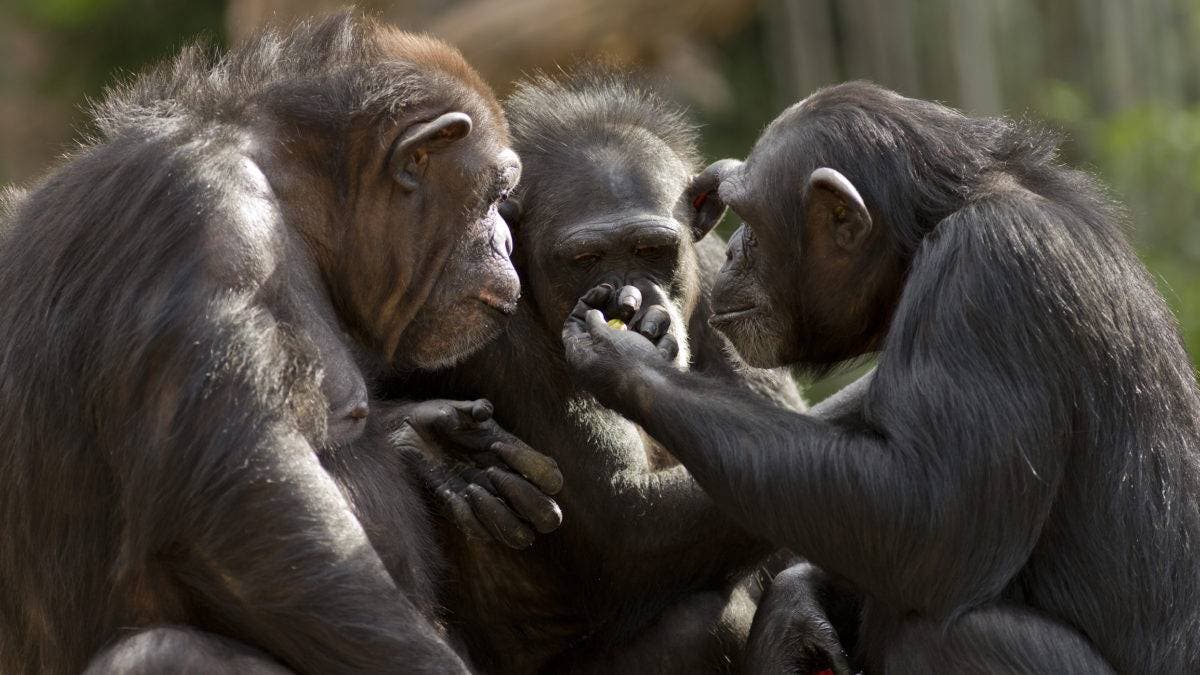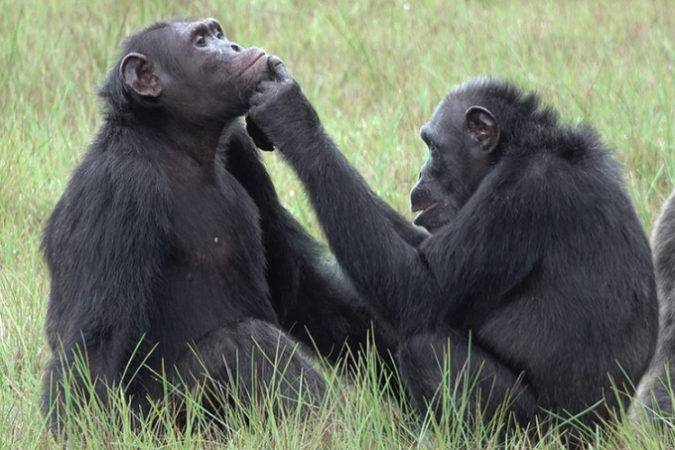Primates use communication to work as a team

Universal Children’s Day is celebrated on the 1st of September every year. primatesWith the aim of highlighting the importance of preserving these species of mammals and warning of the dangers of the extinction of some of them.
Among the major threats is deforestation homeEnvironmental factors, viral diseases, poaching and exploitation for commercial and recreational purposes.
Like humans, chimpanzees use communication to coordinate behavior Cooperative, as while hunting.
When chimpanzees make specific screams, known as “hunting bark,” they recruit more group members for the task and capture their prey better, according to researchers at the University of Zurich and Tufts University in Boston, in a recent study published in Science Advances.
Swiss and American scientists studied a community of 77 chimpanzees in Uganda between 1996 and 2018.
to me to study Over 300 hunting events recorded over the past 25 years in the Kanyawara primate community, researchers have found that by vocalizing bark sounds, monkeys drive collective hunting by making this form of cooperative behavior more effective.
Chimpanzees not only look for fruit, they sometimes look for opportunities to get meat rich in protein.
To catch its graceful monkey prey in the canopy, chimpanzees are best to have hunting companions by their side. Scientists have discovered for the first time that this communication is the key to calling more individuals out of the group and working as a team.
explained Joseph Mayne, PhD in the Department of Comparative Linguistics at the University of Zurich who led the study.

Read more: World Chimpanzee Day: 10 Things You Might Not Know
Hunting monkeys in groups in the dense rainforests of Uganda, where visibility is limited, can be a challenge. Therefore, voice communication allows for more efficient teamwork.
If there is a hunting bark, not only are more individuals involved, but there is “more velocity at the start of the chase and a shorter time to make the first catch,” said study co-author Zarin Machanda, from Tufts University in the USA.
The researchers emphasized that more research is still needed to discover the cause of the effect of barking.
“Currently, it is not yet clear whether these barks were deliberately administered to coordinate the group’s precise actions, or whether these barks were barking They simply announce an individual’s decision to hunt, which in turn increases the likelihood that others will join them and with more hunters. University of Zurich professor Simon Townsend, who also co-led the study, added.
Biologists have looked at a wide range of other factors that can influence the outcome of hunting, including the presence of poachers experts and potential distractions, but the appearance of hunting bark has remained a major role.
“Communication plays a major role in coordinating the complex work of cooperation between humans, and this is the first indication of this. Voice communication It can also facilitate group collaboration in our closest living relatives.”
The scientists were excited about their study, saying: “The results of this research indicate that the relationship between voice communication and group cooperation is an ancient one. This link appears to have been present for at least 7 years. Millions For years, since the last common ancestor with chimpanzees.”

“Professional problem solver. Subtly charming bacon buff. Gamer. Avid alcohol nerd. Music trailblazer.”




:quality(75)/cloudfront-us-east-1.images.arcpublishing.com/elcomercio/6NEH6FMKYBCU7JJWZ5GVRZKTRM.jpg)
/thumbs.vodgc.net/1-14-FnXFWZ1684253239488_1080P.jpg)





